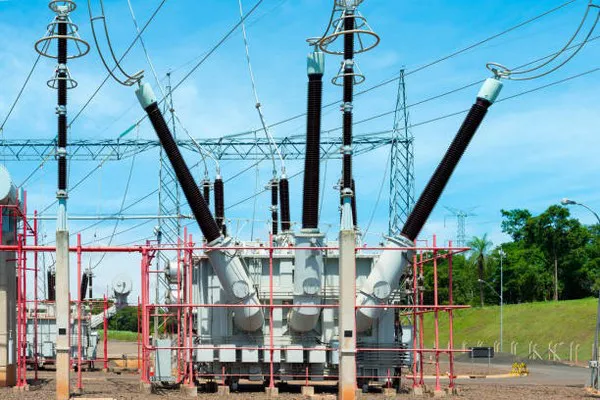Transformers are vital components of electrical systems, facilitating the efficient transmission and distribution of power. However, they are also susceptible to various failures, with one of the most catastrophic being thermal and electrical breakdown resulting in burning up. Understanding the factors that contribute to transformer failures is crucial for ensuring the reliability and safety of electrical infrastructure.
Causes of Transformer Burning Up:
Overloading:
One of the primary causes of transformer failures is overloading. When a transformer is subjected to excessive current beyond its rated capacity for prolonged periods, it leads to overheating. Overloading can occur due to increased demand for power, faulty equipment downstream, or inadequate capacity planning. The excessive heat generated can degrade insulation materials, leading to insulation breakdown and ultimately resulting in the burning up of the transformer.
Insulation Failure:
Insulation degradation is another significant factor contributing to transformer failures. Insulation materials, such as oil-impregnated paper or solid insulation, are used to electrically isolate different components within the transformer. Over time, these materials can degrade due to factors like thermal stress, moisture ingress, or chemical contamination. Once insulation deteriorates, it compromises the integrity of the transformer, increasing the risk of short circuits and thermal runaway, ultimately leading to burning up.
Short Circuits:
Short circuits can occur within a transformer due to various reasons, including insulation failure, mechanical damage, or manufacturing defects. When a short circuit occurs, an excessive current flows through the winding, generating intense heat. This heat can cause insulation materials to melt or ignite, leading to the burning up of the transformer. Short circuits are particularly hazardous as they can escalate quickly, causing significant damage to the transformer and posing a risk to personnel and nearby equipment.
Overvoltage:
Exposure to overvoltage conditions can also result in transformer failures. Overvoltage can occur due to lightning strikes, switching operations, or voltage surges within the electrical network. When a transformer experiences overvoltage, it leads to increased stress on insulation materials and can cause breakdowns in the insulation system. This breakdown can create paths for electrical arcing, which generates heat and can ignite surrounding materials, leading to the burning up of the transformer.
Poor Maintenance:
Inadequate maintenance practices can exacerbate the risk of transformer failures. Regular maintenance, including inspections, testing, and oil analysis, is essential for identifying potential issues early and mitigating risks. Neglecting maintenance tasks such as oil replenishment, insulation testing, and bushing inspections can allow faults to go undetected, increasing the likelihood of transformer burning up due to preventable issues.
Prevention Measures:
Load Management:
Proper load management is critical for preventing transformer overloading. Conducting load studies and capacity assessments can help ensure that transformers are not subjected to excessive currents beyond their rated capacity. Implementing load shedding strategies and installing protective devices such as circuit breakers and fuses can help mitigate the risk of overloading and prevent transformer failures.
Insulation Monitoring:
Regular monitoring of insulation condition is essential for identifying early signs of degradation. Techniques such as insulation resistance testing, partial discharge monitoring, and oil analysis can provide valuable insights into the health of insulation materials. By detecting and addressing insulation issues proactively, the risk of transformer failures due to insulation breakdown can be significantly reduced.
Surge Protection:
Installing surge protection devices can help mitigate the risk of transformer failures caused by overvoltage events. Surge arresters, voltage regulators, and lightning protection systems can safeguard transformers against voltage spikes and transient surges, preventing insulation damage and reducing the likelihood of burning up.
Maintenance Practices:
Adopting robust maintenance practices is crucial for ensuring the reliability and longevity of transformers. Establishing a comprehensive maintenance program that includes regular inspections, cleaning, and testing can help identify potential issues early and address them before they escalate into major failures. Additionally, training personnel on proper maintenance procedures and safety protocols is essential for maintaining the integrity of transformers and preventing accidents.
Thermal Monitoring:
Implementing thermal monitoring systems can help detect abnormal temperature rise within transformers, indicating potential issues such as overloading or insulation degradation. Thermal sensors and infrared imaging techniques can provide real-time temperature data, allowing operators to take proactive measures to prevent transformer failures.
Conclusion:
Transformer burning up can have severe consequences, including power outages, equipment damage, and safety hazards. Understanding the causes of transformer failures and implementing preventive measures are essential for ensuring the reliability and safety of electrical systems. By addressing factors such as overloading, insulation degradation, and poor maintenance practices, stakeholders can mitigate the risk of transformer burning up and safeguard critical infrastructure against unplanned downtime and costly repairs. Investing in proactive maintenance, load management, and insulation monitoring can help extend the service life of transformers and enhance the resilience of electrical networks against potential failures.

